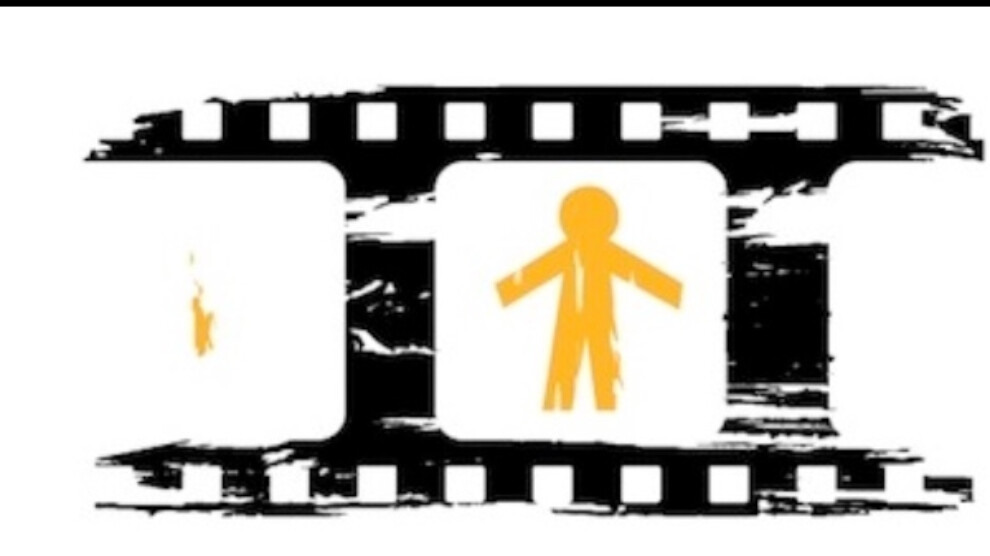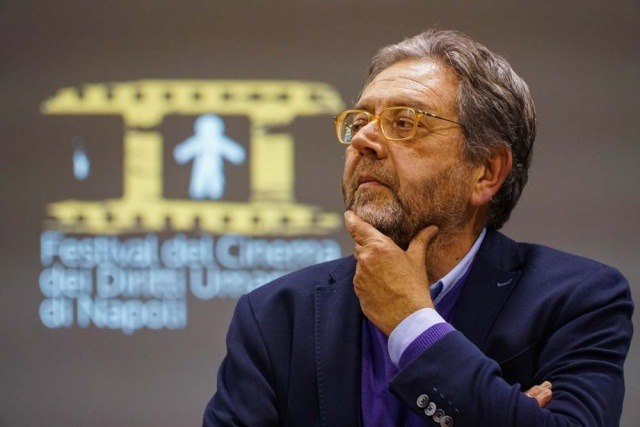Kurdish cinema at Naples Human Rights Film Festival
The 12th Edition of the Naples Human Rights Film Festival is underway in the Italian city of Naples.
The 12th Edition of the Naples Human Rights Film Festival is underway in the Italian city of Naples.

The 12th Edition of the Naples Human Rights Film Festival is underway in the Italian city of Naples. The festival, will end on 28 November, and this year has been organised entirely online, due to the coronavirus pandemic.
The Festival has been called "Human rights on their knees – Pandemic, Sovereigns and New Discriminations".
We spoke to Maurizio del Bufalo, the founder of the Festival.
Could you introduce yourself to our readers?
My name is Maurizio del Bufalo, I am 66 years old, I am retired. I was born in Salerno (Italy, Campania Region) and in 2005 I founded the Naples Human Rights Film Festival of which I am currently the general coordinator. I am an electronic engineer and I have worked for 22 years in information systems (software) for the metalworking industries.
Then I moved on to information systems for the Public Administration and finally in 2000 I quit my job to deal with International Cooperation.I have collaborated for 10 years with the United Nations in various countries around the world (Dominican Republic, Cuba, Serbia, Albania, Morocco, Lebanon) in local economic development for poor countries or in post-conflict situations.At the same time I carried out trade union activities from 1996 to 2010 on behalf of the FIOM and the CGIL. I was in the national secretariat of the CGIL in the cadres section.In 2005 I decided to found the Cinema and Rights Association with an Argentine friend, Julio Santucho, who dealt with Human Rights Cinema and had been a communist guerrilla in his country and had lived in Italy as a refugee.The Festival took its first steps in Albania (2006 and 2007) and then in 2008, we decided to found the Naples Festival, always connecting to Buenos Aires.
Could you tell us about the Naples Human Rights Festival which takes place every year?
The Naples Human Rights Film Festival is a very special event because it is aimed above all at the weakest social categories and at the people most exposed to the risk of dictatorships or in war. The Festival uses the cinema to denounce abuses and prevarications of fundamental human rights and to speak to the people who live in the poorest neighborhoods of Naples or to the operators of humanitarian associations, to young people, to students and to the categories most exposed to the risk of marginalization ( prisoners, migrants, minors, people with mental illness, minorities).
The Festival is open to the public and is completely free for everyone; it is made by a group of ten volunteers coordinated by me and my association "Cinema and Rights"; we have no sponsors and no fixed financial aid. Year after year we seek support from public funds and contests. The Festival is an event completely outside the film market and does not pay attendance fees to directors and uses very few financial resources. Our budget is extremely limited and the members who support it work for free.
The Festival takes place every year in November and this year (2020) reaches its 12th edition. Each year has a main theme that gives the event its name. On 2020 the theme is “Rights on their knees - Pandemic, Sovereignty and New Discriminations” and will talk about the relationship between the pandemic and democracy.The Festival is divided into two sections: International Events and the Film Competition. Events are meetings that last one day and have a specific topic related to the annual theme; they are divided into meetings / debates and screenings out of competition, they include the presence of Italian and foreign guests and witnesses of cases of fights and violations of rights.The Film Competition collects, from May to September, international works through a public tender;an internal commission selects short and long films and a jury of experts awards the prizes in November.There are many mentions and many additional juries, the Young Jury, the Diffused Jury and some juries that are linked every year to agreements with specific categories and associations that support the Festival. Since 2009, the Naples Human Rights Film Festival belongs to the Human Rights Film Network of Amnesty International which is based in Amsterdam (www.humanrightsfilmnetwork.org) and gathers 45 other cities in the world.
The Festival is about human rights and is very important. How did you choose this name and what are your goals?
The name belongs to the international tradition of political cinema and we took it from the Argentines who told the younger generations, through cinema, what had happened in the years of the fascist dictatorship (1976-83). We worked for many years in connection with Buenos Aires and we organized from 2009 to 2013, 5 great "Ventanas su Napoli" in the Argentine capital,with great success with audiences and cinema, making Italian authors known to South American ones and making important cultural exchanges. Then, the lack of funds in Italy prevented us from continuing. Today we have widened our interest towards other countries and we are also turning to Asian countries (Syria, Palestine, Iran, Afghanistan, India) where a very important development of capitalism is taking place, with serious damage to the environment and people.The cinema of these countries is an important cinema, which denounces the violence suffered by the poorest classes. We have a lot of interest in Africa and on all in the migratory phenomena that affect Italy and Europe. In Italy we pay attention to migrants and minorities, while abroad we are especially interested in landless and stateless peoples (Sahrawis, Palestinians, Kurds, Rohingia, etc). Our next Festival will be dedicated to these peoples.
For some years now you have also selected Kurdish films. How long have you known Kurdish people and films?
We who organize the Festival know very well the history of the Kurdish people and their President Abdul Ocalan. Kurdish women are an example for the whole world.I personally knew very well the story of the Kurdish refugees who arrived on the Calabrian coast in 1998 and were welcomed in Riace.We have strong ties with Domenico Lucano, former mayor of Riace, who has built a model of welcome for people who fled their country as a result of war and persecution.We are excited by the courage of the Kurds and with our hearts and minds we are close to the struggle they are fighting in Syria and other parts of Asia.
You are in solidarity with Kurdish cinema. Can you tell us a little about this solidarity?
We have known Kurdish cinema for four years now and a few years ago Veysi Altay's film (The Well) won our most prestigious award, Human Rights Documentary.Since that day we have proposed to our friends from Italian cineforum circles to see this film and then we launched the campaign to support the Kurdish people with a very important evening in the symbolic castle of Naples, the Maschio Angioino, which we organized with the Municipality of Naples. and with the help of Uiki and Silan Ekinci.We then proposed to many Italian circles to show the film "Nujin" and to raise money to support the Kurdish struggle and we found solidarity in many cities. I personally am very attached to Veysi Altay who feel like a distant old friend.
How do you see Kurdish cinema and after the screenings what are the criticisms?
We screen our films in a theater in the historic center of Naples, in the Forcella district, but then we go during the Festival, in many places in the city, even in schools and universities.Sometimes we ask the Mayor of Naples to host the screenings inside public buildings and we have always had positive responses.We liked the Kurdish films we met a lot. Even the Neapolitans appreciated them and we managed to have them shown also in Milan and in other Italian cities because in Italy there is great solidarity with the Palestinian, Sahrawi and Kurdish peoples.We will continue to host Kurdish cinema if you propose it to us and we will do everything possible to remind all Italians that there is a people that cannot come together but fight for its independence. Cinema also serves this purpose to make known the things that newspapers and television do not tell us.
An international campaign for the liberation of Ocalan is underway, what do you think about it?
Personally, I have great admiration for Ocalan and his ideas. He is a brave and wise man who writes very interesting things.It is a shame that he is confined to an island where he cannot receive visitors and exchange thoughts with friends and persons of his people.
I remember the year he was in Italy and everything that happened then, his escape, his arrest, his imprisonment. I have always hoped that that man can return to his people and I hope that the suffering he is undergoing will soon end because keeping him in prison and isolation is one of the greatest cruelties that can be done to a man.His strength is extraordinary in and scares his enemies, but I know his people admire and respect him. If we are offered to help the international campaign for the liberation of Ocalan, we will certainly do so.We are a small festival, but we believe that cinema should help people become aware of politics and their own destiny. We believe in a political cinema which today is called Human Rights Cinema.
